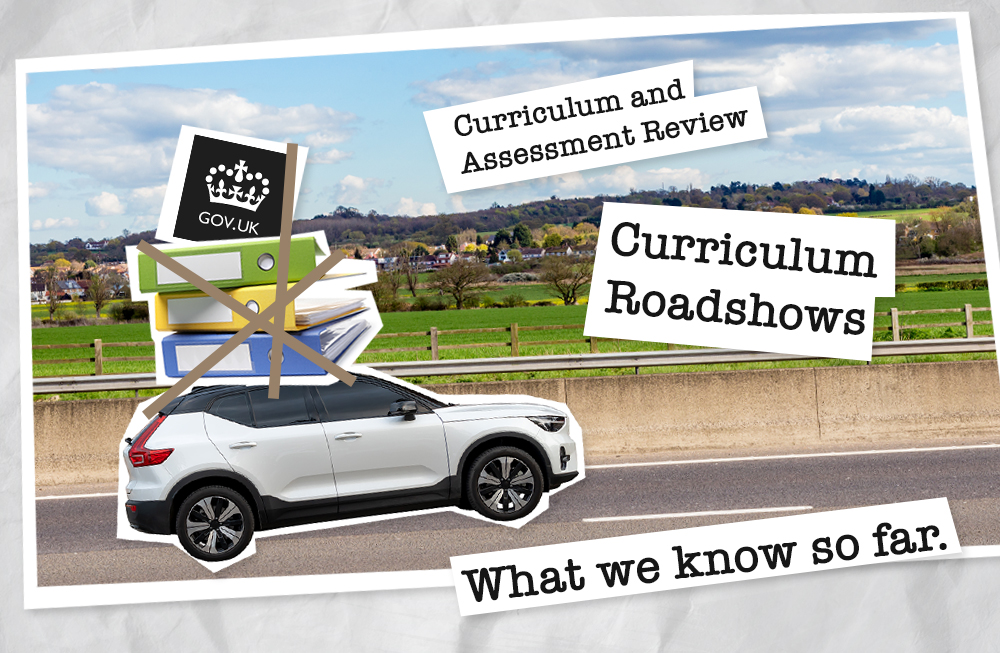Following my recent blog about the Government Curriculum and Assessment Review, I attended one of the curriculum review roadshows touring the country to obtain feedback from teachers and leaders about the curriculum. Here are some key takeaways from the session based on information and feedback from discussion groups I was part of during the day.
1. The review will address issues around pupil disadvantage and children with special educational needs and disabilities (SEND).
This priority is unsurprising, as Labour’s manifesto had already highlighted the review would ensure a ‘rich and broad, inclusive and innovative’ approach to the school curriculum. In addition, as the review launched, Becky Francis said the review would ‘look at the key challenges to attainment for young people, and the barriers which hold children back from the opportunities and life chances they deserve – in particular those who are socioeconomically disadvantaged, or with special educational needs or disabilities (SEND)’.
We were asked to discuss our views on the challenges of the curriculum, especially those that we felt were holding SEND pupils back, and to provide suggestions as to how these barriers could be overcome. Discussions in my focus group identified the over-ambition of the curriculum, particularly in maths and English, and the lack of classroom support for children with special educational or behavioural needs. The support issue, of course, has nothing to do with the curriculum itself but more with the funding available in schools to support these pupils. Nevertheless, the group felt the curriculum was overly ambitious in maths and English and inaccessible to all children, especially those with SEND.
2. The review will focus on both knowledge and skills.
Many of us have never lost sight of the importance of knowledge and skills in the curriculum, and it appears that the pendulum may be swinging back to a more balanced approach to the curriculum rather than a purely knowledge-rich approach.
Indeed, shadow education secretary Bridget Phillipson hinted at this in 2022 when she said a Labour government would reform the curriculum to value skills and knowledge.
‘Our curriculum needs to change to ensure we are arming our children with both the knowledge and skills not merely to face their futures, but to shape them.’
While the message at the roadshow was that schools should be able to build on the hard work of teachers who have developed a knowledge-rich curriculum. However, many teachers were frustrated that time and money had already been spent reviewing their existing curriculums towards a more knowledge-rich approach, only now to see there is further work ahead to reintroduce skills. Many felt that regardless of the ‘evolution, not revolution’ mantra, it would inevitably require more time and money to be spent to make changes. Many felt frustrated and, in some cases, demoralised by this.
3. The curriculum will focus on ensuring diversity, ensuring that children benefit from a curriculum that represents them and their families, regardless of background.
Education Secretary Bridget Phillipson states a ‘refresh’ of what is taught in schools in England is needed, saying the existing curriculum is ‘outdated’. The curriculum, Phillipson says, should reflect the ‘diversities of our society’.
‘It means ensuring all our children feel represented when we teach our people’s history’.
Teachers agreed that the curriculum needed to be more diverse; however, most recognised that to reflect the diversity of their own community, there would need to be much greater flexibility in how they can teach and shape the curriculum rather than adding or adapting any existing content.
Many teachers felt that English and history were the two subjects that were least diverse and would welcome better examples of more varied texts and stories. Teachers also felt that the history curriculum needed to reflect better the histories of more diverse groups that make up British society today.
4. Manage workload.
Becky Francis repeated the message of ‘evolution, not revolution’ regularly. While the aim of this statement appears to be to give schools confidence that they are not facing a massive curriculum overhaul, many teachers felt exhausted by the prospect of more change. They thought any change, no matter how modest, would result in an additional workload. Furthermore, teachers also felt that rather than the curriculum, focusing on personal, social and behavioural skills and freeing up time and space in the curriculum to allow teachers to spend more time with their children would be much more effective in helping children make good progress overall. The exhaustion of some teachers was palpable, and it was obvious that there was some scepticism about the manageability of the work ahead.
Summary
While the roadshows provided a good insight into potential changes coming as part of the curriculum and assessment review, there was indeed a strong feeling amongst teachers of ‘here we go again.’
Yet, there was some agreement that the curriculum could do with some slimming down and updating, particularly in history and English.
However, most teachers and leaders felt that any change, even under the banner of ‘evolution, not revolution’, would result in additional workload on an already pressurised job.
Overall, most teachers and leaders felt that what was most important was to give schools the freedom, time and space they need to make any curriculum changes without the pressure of external accountability such as Ofsted and to understand that for the next few years, the curriculum will be a work in progress for most schools.


